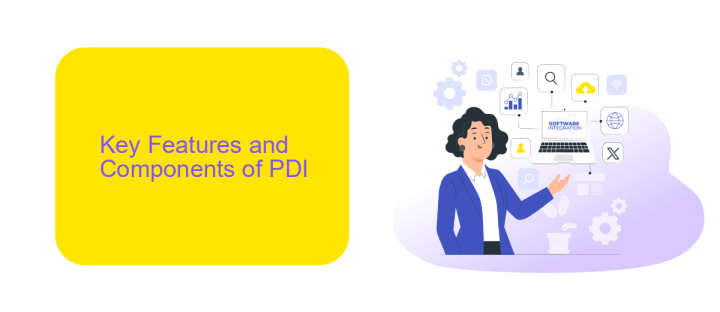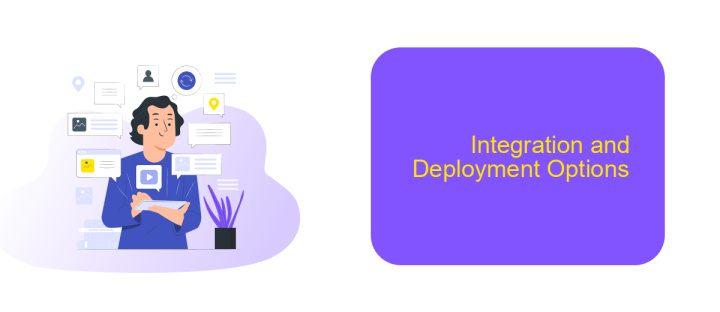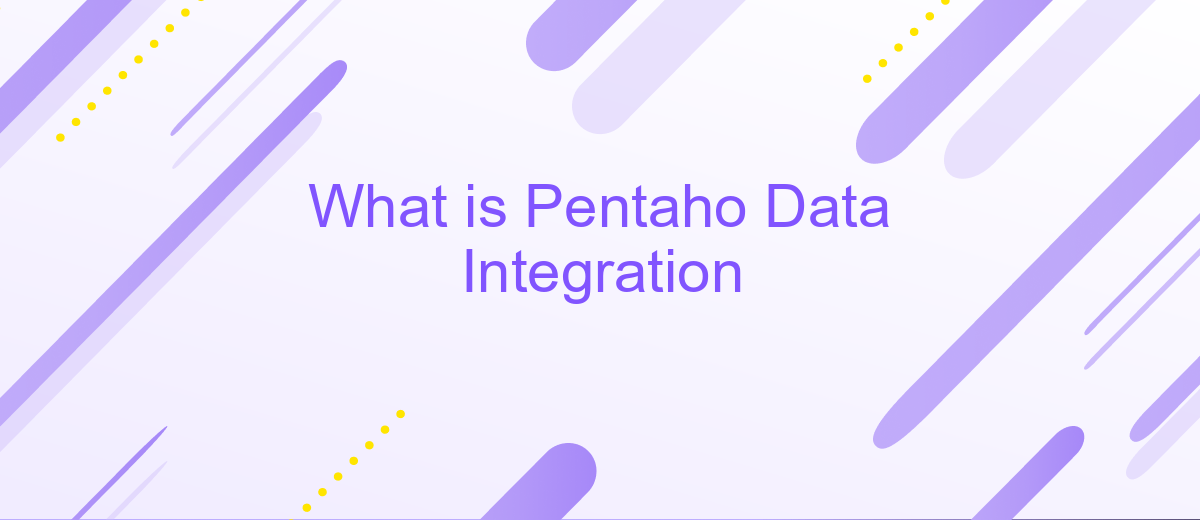What is Pentaho Data Integration
Pentaho Data Integration (PDI), also known as Kettle, is a powerful, open-source data integration tool designed to streamline the process of extracting, transforming, and loading (ETL) data. Widely used in business intelligence and data warehousing, PDI offers robust features for managing complex data workflows, ensuring data accuracy, and enhancing overall analytics capabilities. Discover how PDI can simplify your data management tasks.
Understanding Pentaho Data Integration
Pentaho Data Integration (PDI), also known as Kettle, is a powerful, open-source tool for data integration, transformation, and migration. It simplifies the process of extracting data from various sources, transforming it into a desired format, and loading it into target systems. PDI is widely used for building data warehouses, data marts, and performing ETL (Extract, Transform, Load) operations.
- Extract: Retrieve data from multiple sources such as databases, files, and web services.
- Transform: Cleanse, enrich, and manipulate data to meet business requirements.
- Load: Insert the transformed data into target systems like databases, data warehouses, or cloud services.
By leveraging tools like ApiX-Drive, users can further enhance their data integration processes. ApiX-Drive offers seamless connectivity between various applications and services, automating data transfer and synchronization. This integration ensures that data flows smoothly across systems, reducing manual effort and minimizing errors. With PDI and ApiX-Drive, organizations can achieve efficient and reliable data integration, driving better business insights and decision-making.
Key Features and Components of PDI

Pentaho Data Integration (PDI) offers a comprehensive suite of tools designed for data extraction, transformation, and loading (ETL) processes. One of its key features is the graphical drag-and-drop interface, which simplifies the creation of data pipelines. PDI supports a wide range of data sources, including relational databases, flat files, and cloud services, making it highly versatile. The tool also includes robust data transformation capabilities, such as filtering, sorting, and aggregating data, which are essential for preparing data for analysis.
Another significant component of PDI is its extensive library of pre-built connectors and plugins, which facilitate seamless integration with various systems. For instance, PDI can be integrated with ApiX-Drive, a service that automates data synchronization between different applications and platforms. This integration allows users to streamline their workflows and reduce manual data entry. Additionally, PDI provides advanced scheduling and monitoring features, enabling users to automate ETL jobs and track their performance in real-time. These capabilities make PDI an invaluable tool for organizations looking to enhance their data management processes.
Benefits and Use Cases for PDI

Pentaho Data Integration (PDI), also known as Kettle, is a powerful tool for data integration and transformation. It offers a comprehensive suite of features that simplify the process of extracting, transforming, and loading (ETL) data from various sources. One of the primary benefits of PDI is its user-friendly interface, which allows users to design complex data workflows with minimal coding. Additionally, PDI supports a wide range of data sources, including databases, flat files, and cloud services, making it a versatile solution for diverse data integration needs.
- Data Warehousing: PDI is commonly used for populating data warehouses, ensuring that data is accurately and efficiently loaded from multiple sources.
- Business Intelligence: By integrating data from various systems, PDI enables businesses to generate comprehensive reports and dashboards for better decision-making.
- Data Migration: PDI facilitates seamless data migration between systems, ensuring data integrity and minimizing downtime.
- API Integrations: With tools like ApiX-Drive, PDI can automate data flows between different applications and services, enhancing operational efficiency.
- Data Cleansing: PDI provides robust data cleansing capabilities, allowing organizations to maintain high-quality data standards.
In summary, Pentaho Data Integration is a versatile and powerful tool that addresses a wide range of data integration challenges. Its ability to handle complex data workflows, combined with support for various data sources and integration with services like ApiX-Drive, makes it an invaluable asset for businesses looking to optimize their data management processes.
Integration and Deployment Options

Pentaho Data Integration (PDI) offers versatile integration and deployment options to suit various business needs. Whether you are looking to integrate data from different sources or deploy transformations and jobs, PDI provides the necessary tools and flexibility.
One of the key features of PDI is its ability to seamlessly integrate with numerous data sources, including relational databases, flat files, and cloud services. This ensures that your data is consistently accessible and up-to-date across all platforms.
- Batch Processing: Schedule and automate data transformations.
- Real-Time Processing: Integrate and process data in real-time.
- Cloud Integration: Connect with cloud-based data sources and services.
- API Integration: Utilize APIs to connect with various applications and services.
For those looking to streamline their integration processes, services like ApiX-Drive can be invaluable. ApiX-Drive allows for easy setup and management of integrations without the need for extensive coding, making it an excellent complement to PDI's robust capabilities. This ensures that your data workflows are both efficient and reliable.
- Automate the work of an online store or landing
- Empower through integration
- Don't spend money on programmers and integrators
- Save time by automating routine tasks
Future of Pentaho Data Integration
The future of Pentaho Data Integration (PDI) looks promising as it continues to evolve in response to the growing needs of big data and advanced analytics. As organizations increasingly rely on data-driven decision-making, PDI is expected to integrate more seamlessly with cloud-based platforms and enhance its capabilities in handling large-scale data processing. Innovations in machine learning and artificial intelligence will likely be incorporated, enabling users to perform more complex data transformations and predictive analytics with greater ease.
Additionally, the integration landscape is becoming more diverse, and tools like ApiX-Drive are playing a crucial role in simplifying the process. ApiX-Drive allows users to automate data flows between various applications and services without requiring extensive technical knowledge. This kind of synergy between PDI and integration services will empower businesses to streamline their data operations, reduce manual intervention, and achieve faster insights. As a result, Pentaho Data Integration is poised to remain a vital tool for businesses aiming to leverage their data more effectively in the future.
FAQ
What is Pentaho Data Integration?
What are the primary features of Pentaho Data Integration?
Is Pentaho Data Integration suitable for big data projects?
Can Pentaho Data Integration be used for real-time data integration?
What services can assist with automating and configuring data integrations in Pentaho Data Integration?
Time is the most valuable resource in today's business realities. By eliminating the routine from work processes, you will get more opportunities to implement the most daring plans and ideas. Choose – you can continue to waste time, money and nerves on inefficient solutions, or you can use ApiX-Drive, automating work processes and achieving results with minimal investment of money, effort and human resources.


